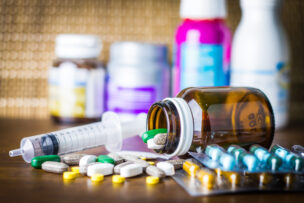
According to the news (バイオシミラー普及へ「シェア80%超成分を6割に」の新目標、市場拡大元年となるか | AnswersNews (ten-navi.com)) released by Answers as date of 05/06/2023, the Ministry of Health, Labour and Welfare has set a goal for disseminating biosimilars (BS). By the end of the fiscal year 2029, they aim to increase the replacement rate of reference products to BS, of which market share exceeds 80%, to 60% on a quantity basis. Currently, 16 ingredients of BS have been approved, but only three ingredients, epoetin-α, filgrastim and darbepoetin-α, representing less than 20%, have achieved a quantity share of 80% or more. It is said that the dissemination of BS will take time and may follow a similar path as generic drugs. While concerns about quality are settling down, there is still a lack of stability in the supply of imported products, and cases of shipment adjustments and suspensions exist. Currently, only three ingredients exceed a quantity share of 80%, and there are challenges in increasing the percentage of those ingredients. The introduction of authorized generics (AG) has quickly increased the overall share of BS, but price competition has eroded companies’ financial strength, posing challenges for investment recovery and supply continuity. Cost-effectiveness is crucial for achieving the government’s target, and companies with a consistent system from in-house manufacturing to sales can reduce costs. However, sourcing from other companies may take time to secure profits. To promote wider dissemination, incentives in the medical fee reimbursement system and alleviation of economic burdens are necessary, but the previous policies have not yielded satisfactory results. Ensuring a stable supply is also essential, as it becomes difficult to gain the trust of physicians and patients in situations of supply instability. The dissemination of BS is still in its early stages and faces various challenges to be addressed.
